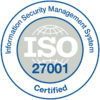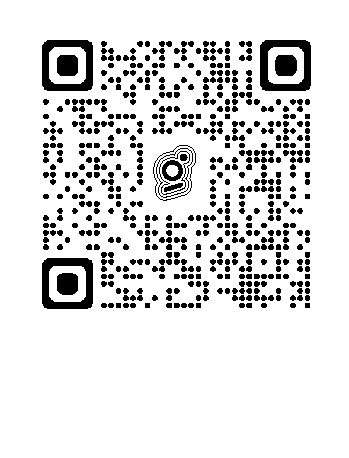Gotaps
Small & medium size businesses
Large & complex organizations
Companies & Teams
Digital cards for teams
Instant sync to CRM
Scan cards, capture leads
Email signature management
Automate follow-ups
Collect 3x more leads
Instant team setup
QRs for lead capture
Meeting background generator
Bulk card management
Industry
Professionals & entrepreneurs
Digital cards for construction
Retain new clients
Digital cards for lawyers
Nurture leads, close deals
Capture & nurture leads
Scan badges & manage leads
Nurture leads, close deals
Digital cards for realtors
Use Cases
Collect 3x more leads
Manage events & lead info
Lead Generation
Ensure up-to-date info
Automate follow-ups
Measure & optimize lead gen
Instant sync to CRM
Make an impact
-
 Best Digital Business Card for Realtors07 Oct 2024 Construction Industry
Best Digital Business Card for Realtors07 Oct 2024 Construction Industry -
 Best Digital Business Card Solutions for Business Services07 Oct 2024 Digital Business Cards
Best Digital Business Card Solutions for Business Services07 Oct 2024 Digital Business Cards -
 Digital Business Cards: Modernizing Banking and Finance Networking07 Oct 2024 Digital Business Cards
Digital Business Cards: Modernizing Banking and Finance Networking07 Oct 2024 Digital Business Cards -
 Best Digital Business Card for Lawyers28 Sep 2024 Construction Industry
Best Digital Business Card for Lawyers28 Sep 2024 Construction Industry -
 5 Reasons You Need a Digital Business Card this October28 Sep 2024 Digital Business Cards
5 Reasons You Need a Digital Business Card this October28 Sep 2024 Digital Business Cards -
 What are Lead Sources27 Sep 2024 Blog
What are Lead Sources27 Sep 2024 Blog
Why trust Gotaps
Contact Us
Questions? Get in touch with us 24/7
Premium Concierge Services
Learn about our premium setup and support services
Best Digital Business Card Solutions for Business Services
In today’s fast-paced and digitally-driven business environment, the way we connect and network has evolved significantly. Traditional paper business cards, while still in use, are gradually being replaced by more efficient and innovative solutions—digital business cards.
These modern alternatives offer numerous benefits, from streamlining networking processes and reducing manual updates to enhancing lead capture and follow-up. As businesses strive for greater efficiency and effectiveness in their operations, understanding how to leverage digital business cards becomes increasingly important.
This guide delves into the strategies for nurturing leads, closing deals, improving efficiency, and best practices for using digital business cards, along with insights into future trends and developments in this space.
The Benefits of Using Digital Business Cards
Enhanced Connectivity and Convenience
Networking is crucial for business growth, and digital business cards make it easier than ever to connect and stay connected. They can be shared seamlessly via email, social media, or messaging apps, allowing for instant and convenient exchanges of contact information.
NFC (Near Field Communication) and QR code technology enable quick and effortless transfers of your digital card to potential clients’ devices.
This technology not only reduces the risk of losing contact information but also ensures that your details are always up-to-date and easily accessible.
Cost-Effectiveness
Digital business cards offer long-term savings that traditional paper cards can’t match. The initial costs of designing and printing paper cards can quickly add up, especially when updates are necessary. With digital business cards, there are no recurring printing expenses.
You can update your information in real-time without incurring additional costs.
Moreover, digital business cards can be shared an unlimited number of times without any extra charges, making them a highly cost-effective solution for businesses aiming to maximize their budget.
Professional Presentation
First impressions matter, and digital business cards ensure you make a lasting one. These cards offer customizable designs that reflect your unique brand and personality.
Whether it’s adding a professional headshot, linking to your portfolio, or showcasing your achievements, digital business cards provide a modern and polished way to present yourself.
Features like personalized videos, client testimonials, and links to professional profiles enhance your credibility and establish your expertise.
Consider incorporating dynamic content with a video created using a splice video editor to further engage your audience. This tool allows you to edit and refine videos effortlessly, making them more impactful and tailored to your brand. High-quality video content can capture attention and leave a memorable impression on potential clients or partners.
There are professionals who specialize in creating video ads for website publishers. Hire them to create professional ads then add links to them in your digital business card to share with customers in your network. This professional presentation helps build trust and positions you as a leader in your field.
Eco-Friendliness
In a world increasingly conscious of environmental impacts, digital business cards stand out as a sustainable alternative. Traditional paper business cards contribute significantly to deforestation.
Did you know that each year, about 7.2 million trees are cut down just to produce paper business cards?
More alarming, 90% of those cards are discarded the same day they are received.
Digital business card services eliminate the need for paper and ink, drastically reducing waste. By switching to digital, businesses not only demonstrate a commitment to the environment but also align themselves with the growing consumer preference for eco-friendly practices.
How Digital Business Cards Work
Technical Aspects: NFC and QR Codes
Understanding the technology behind digital business cards can help you appreciate their convenience and efficiency. NFC (Near Field Communication) and QR codes are the backbone of this technology. NFC allows two devices to communicate when they’re in close proximity, enabling a quick transfer of your digital business card.
Simply tap your card to a recipient’s smartphone, and your contact details are instantly shared. QR codes offer another seamless sharing option. A quick scan with a smartphone camera brings up your digital card, ready to be saved.
This technology ensures that your information is easily accessible and shareable, enhancing your networking capabilities.
Sharing Functions and Compatibility
Digital business cards are designed to be versatile and user-friendly. They can be shared through various platforms, including email, social media, and messaging apps. This compatibility ensures that no matter how you prefer to connect, your digital business card is always ready to go.
Furthermore, digital cards can include links to your website, social media profiles, and even Google Maps for easy navigation to your office.
This interactivity allows you to provide comprehensive information in a compact format, making it easier for potential clients to engage with your content and services.
Using Digital Business Cards to Nurture Leads
Strategies for Lead Nurturing
Lead nurturing is a crucial aspect of the sales process, and digital business cards can play a pivotal role. One effective strategy is to use the immediacy and connectivity of digital cards to keep your leads engaged.
When you meet a potential client and exchange digital business cards, it sets the stage for ongoing communication. Follow up quickly with personalized messages or value-added content, such as industry insights or special offers.
The instant connectivity provided by digital business cards ensures that your follow-up is timely and relevant, helping to keep your brand top-of-mind for potential clients.
Personalized Follow-Ups and Communication
Personalization is key to nurturing leads effectively. Digital business cards allow you to add notes about each interaction directly into your CRM, making it easy to remember specific details about your contacts.
For example, if you discussed a particular pain point during your meeting, reference it in your follow-up communication. Personal touches like these show that you are attentive and invested in your client’s needs, building stronger relationships.
Furthermore, you can customize your digital business card with links to relevant resources, such as case studies or testimonials, that address your client’s unique challenges and showcase your expertise.
Leveraging CRM Integration for Lead Management
Digital business cards seamlessly integrate with CRM systems, streamlining lead management. When you exchange a digital business card, the contact information is automatically uploaded to your CRM. This eliminates manual data entry and ensures that your contact information is always accurate and up-to-date.
With all your leads centralized in one place, you can track interactions, set reminders for follow-ups, and analyze data to identify trends and opportunities. Integrating these systems with a VoIP phone service can further enhance your ability to communicate with leads, ensuring timely and effective follow-ups.
This integration makes it easier to manage your sales pipeline and nurture leads effectively, ultimately increasing your chances of converting them into customers.
Closing Deals with Digital Business Cards
Techniques for Using Digital Business Cards in Sales
Using digital business cards effectively in sales involves more than just exchanging contact information. It’s about leveraging the technology to enhance your sales process.
For instance, you can use the interactive features of digital cards to provide potential clients with instant access to your portfolio, product demos, or client testimonials. This immediate access to valuable information can help address any objections or questions they might have, moving them closer to a purchasing decision.
Additionally, digital business cards can include links to schedule meetings or calls, making it easy for prospects to take the next step.
Building Trust and Credibility
Trust and credibility are essential in closing deals, and digital business cards can help establish both. By providing a professional, polished presentation of your brand, digital business cards convey a sense of reliability and competence.
Including links to your LinkedIn profile, professional certifications, and client reviews can further enhance your credibility.
For tradespeople, digital business cards offer a unique opportunity to build trust by showcasing their specific qualifications and insurance coverage.
For example, electricians can include information about their specialized electrician insurance, demonstrating their commitment to safety and professionalism. This level of transparency can significantly increase a customer’s confidence when choosing a service provider.
Moreover, the ability to share real-time updates and personalized content demonstrates your commitment to transparency and client engagement. These elements combined help build a strong foundation of trust, making prospects more comfortable in doing business with you.
Effective Follow-Up Strategies to Close Deals
Effective follow-up is critical to closing deals, and digital business cards make it easier to stay in touch with potential clients. Use the automatic reminders and actionable notes features in your CRM to schedule timely follow-ups. Send personalized emails or messages that reference your previous interactions and address any outstanding concerns.
Offering additional information, such as a detailed proposal or a free consultation, can also help move the deal forward. The key is to maintain consistent, meaningful communication that keeps the prospect engaged and reassured of your value proposition.
By leveraging the convenience and functionality of digital business cards, you can streamline your follow-up process and increase your chances of closing deals.
How Digital Business Cards Improve Efficiency
Streamlining Networking Processes
Digital business cards revolutionize the traditional networking experience by making it more efficient and streamlined. Gone are the days of fumbling for a physical card during a crucial moment. With digital business cards, sharing contact information is as simple as tapping a phone or scanning a QR code.
This immediacy ensures you can make connections quickly and seamlessly, whether you’re at a conference, a meeting, or a casual encounter.
Furthermore, digital business cards can be shared across multiple platforms, including email and social media, ensuring you never miss an opportunity to connect.
Reducing Manual Updates
One of the most significant advantages of digital business cards is the ability to update your information in real-time. Traditional paper cards become outdated as soon as any detail changes, necessitating costly reprints.
With digital business cards, you can instantly update your contact information, job title, or other relevant details, ensuring that your connections always have the most current information.
This not only saves time and money but also reduces the risk of miscommunication or lost opportunities due to outdated contact details.
Enhancing Lead Capture and Follow-Up
Digital business cards are integrated with CRM systems, making lead capture and follow-up more efficient than ever. When you exchange a digital business card, the contact details are automatically saved to your CRM, eliminating the need for manual data entry.
This ensures that all your leads are accurately captured and stored in one central location. You can set reminders and track interactions, making follow-up more timely and personalized. This streamlined process enhances your ability to nurture leads and convert them into clients.
Additionally, businesses looking to enhance their operational efficiency and streamline processes often turn to technologies that facilitate quick and reliable transactions.
An essential aspect of achieving this is integrating EDI systems within existing business frameworks. This approach not only reduces human errors but also accelerates data processing, leading to more efficient supply chain management.
Best Practices for Using Digital Business Cards
Guidelines for Optimal Use
To make the most of your digital business cards, follow these best practices:
- Keep it Professional: Ensure your digital business card includes essential information such as your name, job title, company, phone number, email address, and a professional headshot.
- Update Regularly: Keep your information current to reflect any changes in your role or contact details.
- Use Interactive Elements: Incorporate clickable links to your website, social media profiles, business phone number that connects to your call center software, or portfolio to provide more value to your contacts.
- Personalize Follow-Ups: Use notes and CRM integration to personalize your follow-up messages based on your interactions.
Do’s and Don’ts
- Do: Share your digital business card proactively at networking events and meetings.
- Do: Customize your card to reflect your brand and personality.
- Don’t: Overload your card with too much information; keep it concise and focused.
- Don’t: Neglect to follow up with new contacts; timely communication is key to building relationships.
Case Studies and Examples
Consider a sales executive who frequently attends industry conferences. By using digital business cards, they can quickly exchange contact information with potential clients and partners. The immediate capture of leads into their CRM allows for timely and personalized follow-ups, leading to higher conversion rates and more closed deals.
Another example is a freelancer who updates their portfolio regularly. With digital business cards, they can ensure that prospective clients always have access to their latest work, increasing their chances of securing new projects.
The Future of Digital Business Cards
Emerging Trends and Technologies
As technology continues to evolve, so too will digital business cards. One emerging trend is the integration of augmented reality (AR) features, allowing users to add interactive elements such as 3D business logos or product demonstrations.
Additionally, advancements in artificial intelligence (AI) could enable predictive analytics, offering insights into the best times to follow up with leads or suggesting personalized messages based on past interactions.
Predictions for Future Developments
In the near future, digital business cards are expected to become even more sophisticated, with enhanced security features to protect personal information and blockchain technology to verify credentials and ensure authenticity.
Integration with virtual and augmented reality platforms could also become commonplace, providing immersive networking experiences and more dynamic ways to share information.
Potential Impact on Business Services
The continued development of digital business cards will likely have a significant impact on business services. Companies that embrace these technologies will benefit from increased efficiency, better lead management, and more effective networking.
As digital business cards become more widely adopted, traditional paper cards may become obsolete, leading to a more sustainable and environmentally friendly business environment.
Conclusion
Digital business cards represent a significant advancement in how professionals network and manage their contacts. By embracing these innovative tools, businesses can streamline their networking processes, reduce the need for manual updates, and enhance their lead capture and follow-up strategies.
The integration with CRM systems further boosts efficiency, ensuring timely and personalized communication with potential clients.
As we look to the future, emerging technologies such as augmented reality and AI will continue to transform digital business cards, making them even more powerful and effective.
By adopting best practices and staying informed about these trends, businesses can maximize the potential of digital business cards, ultimately driving growth and success in an increasingly digital world.
Store
- All Product
- Cards
- Back of Phone
- Metal Cards
- Wristbands
- Badges
- Animal
- Keychains
- For Events
Legal
- Data Protection
- Do Not Share My Personal
- Intellectual Property
- Privacy Policy
- Refund Policy
- Terms of Service

Company
- GOtaps for Teams
- Digital Business Card
- Documentation
- Blog
- Tutorials
- Help
- iPhone Widgets
- Branded Push Notifications
- QR Code Generator
- GOtaps Teams Login
GOtaps Company 2024




